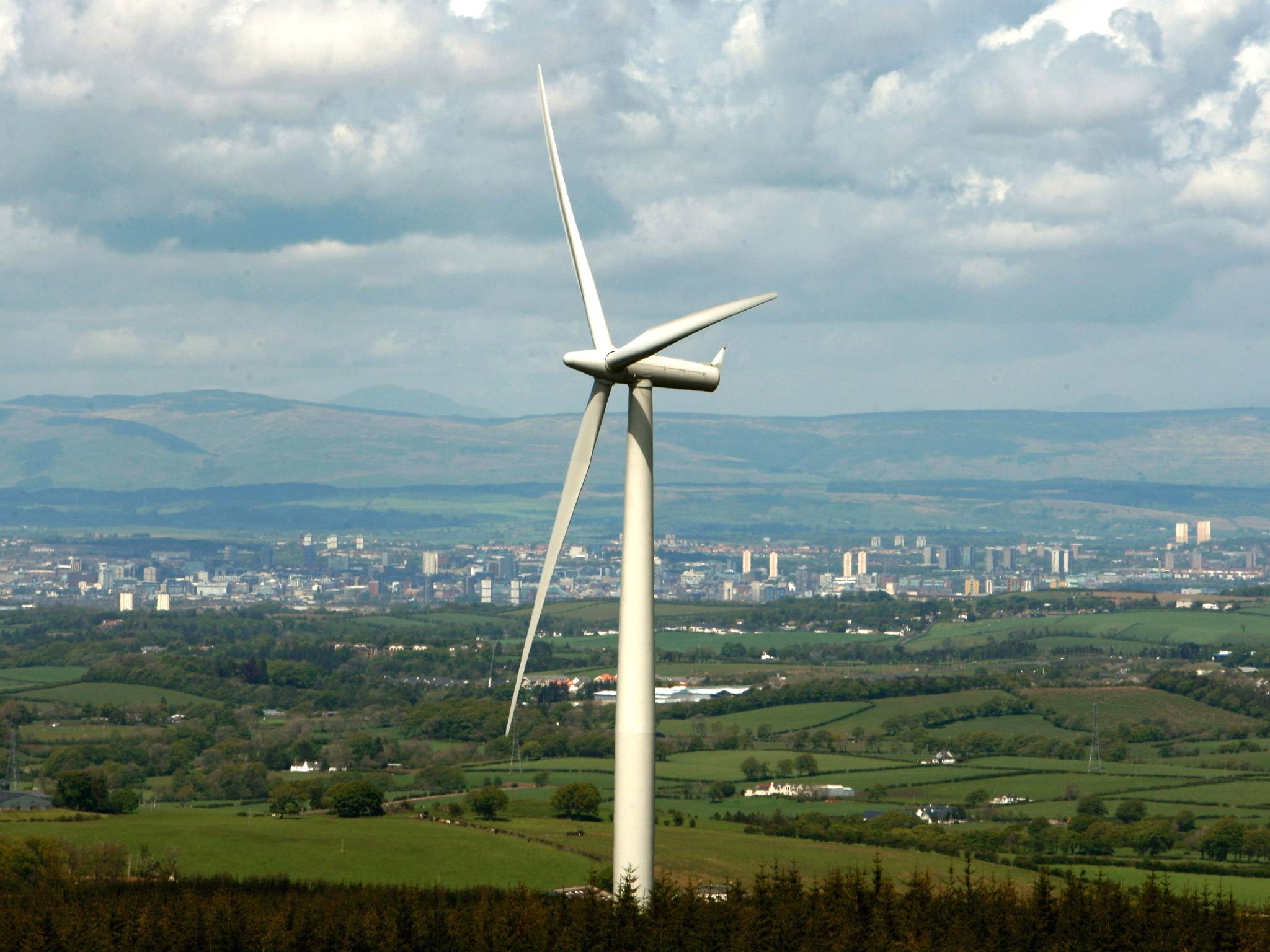Britain's unpredictable weather defines the national character. It also means that onshore wind farms don't make sense
Those of us who care about the environment should give up on turbines


Let’s talk about the weather. It is a cliché that discussing rain, wind and snow is our national obsession, but we Brits really are at it all the time – this week it’s the warm front and southerly winds bringing dust from the Sahara to sprinkle on our cars and pollute our lungs.
The arrival of April and the rush of warm air make us dream of a barbecue summer, and the winter floods seem to belong to another country. So the announcement by the Met Office that they can make more reliable long-term forecasts, with 80 per cent accurate predictions of prevailing snow, drought or heavy rainfall as far as three months ahead, should be welcome. For the NHS, Highways Agency, airports, and councils who need to grit roads and runways or prepare for a surge in cold-related illnesses, I can see why this is a good thing.
But hang on a minute. Don’t we love talking about the British weather precisely because it is so unpredictable? Wouldn’t making things more predictable spoil the fun of not knowing whether the coming summer was going to be washout or drought?
What would be the point of betting on a White Christmas if we were told in September that there’s no chance of snow on 25 December? Maybe it’s just me and my northern English genes, but my default weather expectation level is set to drizzle, so I always get a frisson of excitement when told of an unexpected and imminent heatwave.
It’s all very well being told in April of a long, hot summer, but what if the long-term forecast for August was rain? At least unreliable weather forecasting keeps our hopes alive. As a keen gardener, with an allotment, anyone would think better predictions would be good for my vegetable planning. Yet I enjoy my daily joust with the weather as I tend my plot. I prefer the immediacy of the old wives’ tales such as: “Red sky at night, shepherds’ delight; red sky in the morning, shepherds’ warning”. My grandmother’s favourite way of forecasting was: “If there’s enough blue sky to make a sailor’s pair of trousers, it will be a nice day.”
And what would we talk about, in those otherwise painful encounters with semi-acquaintances in office lifts, with fellow commuters on trains, or as we apologise to courier delivery drivers for the heavy rain as they stand on your doorstep waiting for you to sign for the parcel?
I was told recently that my old geography teacher, who was obsessed with cloud formations and hated weather forecasters using the word “nice”, later gave up his job at my former school and moved to Jamaica. He then, I was told, moved back to Britain because he missed the rain, clouds and, most of all, the unpredictability of our weather.
Clearly there are downsides to this unreliability. Driving down the A1 from North Yorkshire to London the other day, we passed three huge wind turbines jutting into the sky from a nearby field. The giant blades were completely still, as there was not a sniff of a breeze. Every time I see a wind turbine, from Romney Marsh to Halifax, they are as still as statues. Unlike many local residents, RSPB members and Conservative MPs, I used to think wind turbines looked rather striking and graceful, that they were bold and progressive monuments to human attempts to harness the weather. Yet I am changing my mind about their presence on our landscape.
The lack of onshore wind surely means they cannot be a major element in the Government’s “energy mix”, and therefore those of us who care about the environment and renewable energy should give up on turbines. With such vehement opposition to wind turbines locally and, we learnt yesterday, also inside Downing Street, there seems little point in pushing a renewable source of energy that has a poor record on generating power. Even the Government giving more control and incentives to local communities who accept turbines in their backyard has failed to trigger nationwide enthusiasm for onshore wind.
It would be an admission of failure for the environmental movement to drop support for onshore wind, of course, but perhaps green campaigners should admit that there’s not much point in building any more. To lash the green movement to 50-metre steel blades no longer makes sense. Far better to get behind a renewable energy that is more efficient and less offensive, like offshore wind, tidal power, or even new nuclear. This strategy may be more expensive in the short term, but a better case can be made because there is a greater chance of reliable energy generation.
By contrast, continuing to invest in onshore wind is a false economy and relies on something that is gloriously unreliable: our British weather.
Join our commenting forum
Join thought-provoking conversations, follow other Independent readers and see their replies
Comments
Bookmark popover
Removed from bookmarks